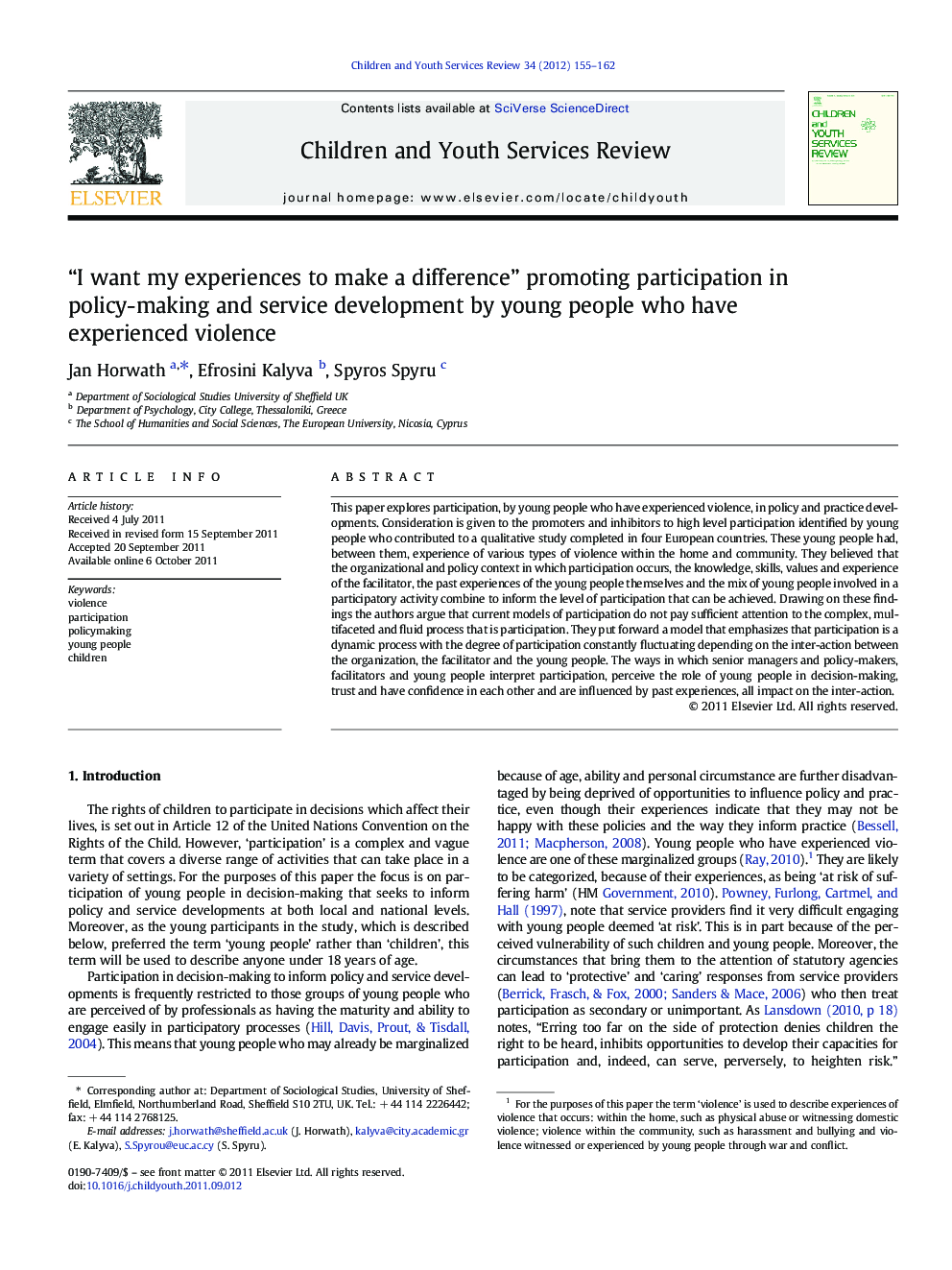| Article ID | Journal | Published Year | Pages | File Type |
|---|---|---|---|---|
| 346722 | Children and Youth Services Review | 2012 | 8 Pages |
This paper explores participation, by young people who have experienced violence, in policy and practice developments. Consideration is given to the promoters and inhibitors to high level participation identified by young people who contributed to a qualitative study completed in four European countries. These young people had, between them, experience of various types of violence within the home and community. They believed that the organizational and policy context in which participation occurs, the knowledge, skills, values and experience of the facilitator, the past experiences of the young people themselves and the mix of young people involved in a participatory activity combine to inform the level of participation that can be achieved. Drawing on these findings the authors argue that current models of participation do not pay sufficient attention to the complex, multifaceted and fluid process that is participation. They put forward a model that emphasizes that participation is a dynamic process with the degree of participation constantly fluctuating depending on the inter-action between the organization, the facilitator and the young people. The ways in which senior managers and policy-makers, facilitators and young people interpret participation, perceive the role of young people in decision-making, trust and have confidence in each other and are influenced by past experiences, all impact on the inter-action.
► Participation is a multifaceted, dynamic and complex process. ► The degree of participation by young people changes constantly. ► Micro interactions between young people and organizational representatives are key. ► Levels of trust, confidence and past experiences influence what is achievable. ► Participation reduces when young people feel insecure or under-valued.
